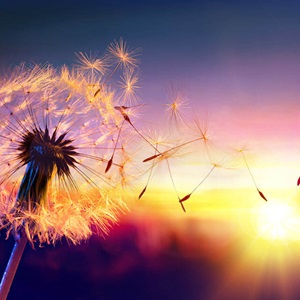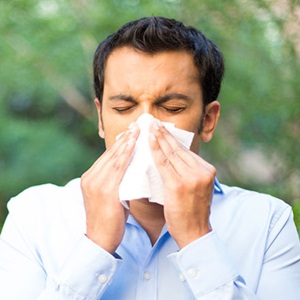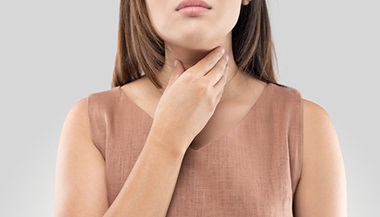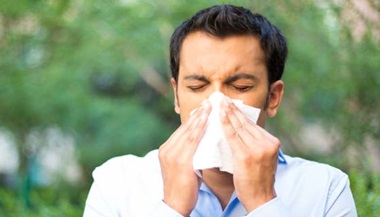Allergens: Pollen
What You Need to Know

- Pollen is the most common cause of allergic rhinitis.
- Pollen is microscopic in size.
- Pollen from trees, grasses and weeds is easily windblown and known to cause allergies.
What is pollen?
Pollen is the tiny egg-shaped male cells of flowering plants, including trees, grasses, and weeds. Pollen is microscopic in size.
It is the most common cause of seasonal allergic rhinitis, sometimes known as hay fever.
Which plants produce pollen that cause allergic reactions?
Plants that have powdery granules of pollen that are easily blown by the wind, such as:
-
Trees, such as oak, western red cedar, elm, birch, ash, hickory, poplar, sycamore, maple, cypress, walnut, catalpa, olive, and pecan
-
Grasses, such as Timothy, Johnson, Bermuda, orchard, sweet vernal, red top, and some blue grasses
-
Weeds, such as ragweed, sagebrush, pigweed, tumbleweed, Russian thistle, and cockle weed
Most flowering plants, such as roses, have heavier, waxy pollens that are not as easily wind-blown.
Allergies: Answers from Allergy Expert Dr. Sandra Lin

About 45 million Americans suffer from environmental allergies. Dr. Sandra Lin, a Johns Hopkins otolaryngologist (ENT) and allergy expert, answers some of the most commonly asked questions about treating environmental allergies.
When is pollen season?
Each plant has a pollen season. It usually starts in the spring, but may begin as early as January in the southern areas of the U.S. The season usually lasts until November.
Can allergic rhinitis in pollen season be prevented?
To lessen the effects of allergic rhinitis during pollen season, the American Academy of Allergy, Asthma, and Immunology suggests the following:
-
Keep windows closed at night and use air conditioning, which cleans, cools, and dries the air.
-
Minimize outdoor activities early in the morning, between 5 and 10 a.m., when pollen is most prevalent.
-
Keep car windows closed when traveling.
-
Take a vacation to an area where pollen is not as prevalent, such as the ocean.
-
Take the medicines prescribed by your healthcare provider.
-
Don't spend much time outdoors when the pollen count is high.
-
Don't rake leaves during pollen season.
-
If you are allergic to grass, wear a mask or have someone else mow the lawn.
-
Don't hang bedding or clothing outside to dry.
For information about food allergies please visit the following pages:




